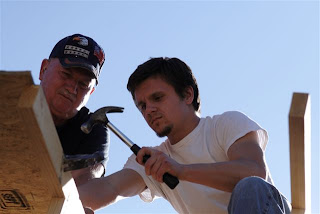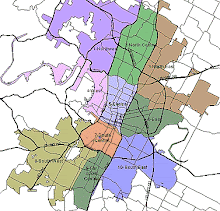
When I read stories in the Statesman (or any news) that demonstrate use of student input, I jump up and down and dance. This city has been avoiding the use of its student population for years, and I am literally at a loss as to why. This city has one of the highest concentrations of students in the entire state of Texas, and we basically pat them on theirs heads, and tell them to fill up the punch bowl. Recently, I was inspired by the student input into the Waller Creek development, and after walking in the Waller Creek area today, I can honestly say that it needs a bunch of planners, students and developers working on it.
Student initiative is vital to a constantly changing city. For example, there are several downright ugly traffic medians ("islands" as they are called) which could use landscaping. Well, we could pay some landscaping firm to come up with an idea that might get into the budget 20 years later. Or, we could make these islands projects for landscape architecture students, landscaping students, or any other type of students who are in the process of learning about how to make the outdoors prettier. These bring up the value in the community and they provide experience for students before they graduate.
We have students, and pretending otherwise is detrimental to our local economy. Instead of paying them nothing and having them fill punch bowls, we should start putting them to good use and making it less possible for them to live in our city without becoming positively engaged in the good of the entire community.



